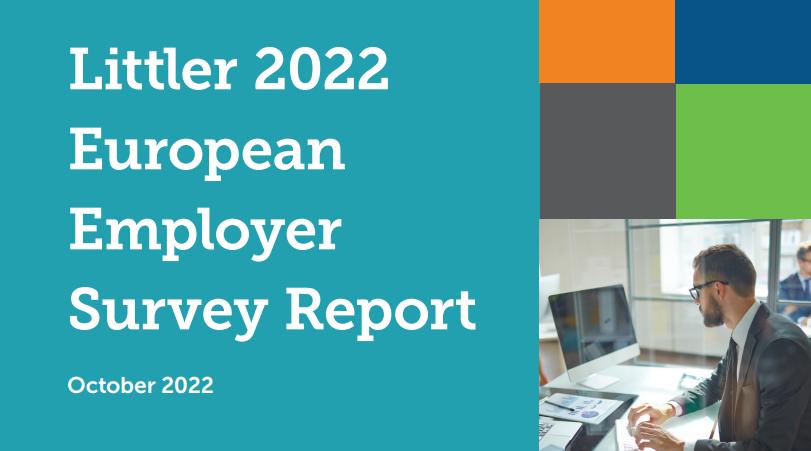
European Employers Caught Between Desire for In-Person Work and Need to Provide Flexibility, Littler Survey Finds
20.10.2022
Littler, the world’s largest employment and labour law practice representing management, has released its fifth annual European Employer Survey Report. Completed by nearly 700 human resources executives, in-house lawyers and business leaders based mainly across Western and Southern Europe, the survey provides insight into the key issues facing employers amid a historic period of workplace transformation.
Balancing Remote and In-Person Work
The evolving world of work creates a host of novel issues for European employers – among the most pressing of which may be determining how far they can go in requiring in-person work. This year’s survey finds employers pulled in different directions as their desire to increase in-person work may conflict with the flexibility needed to attract and retain talent.
When asked about current requirements for employee work schedules, 30% said employees are working fully in person and 27% said employees are on hybrid schedules, with more days in person than remote. That’s compared with only 11% who said employees are on hybrid schedules working more days remotely than in person, and just 5% who said their employees are working fully remotely.
The trend toward more in-person work may deepen in the coming months, as 73% of employers who are not already requiring fully in-person work said they are considering reducing remote work options. Those who do may encounter roadblocks from employees who are reluctant to relinquish flexibility.
Concerns With Remote Work Remain
As employers walk a fine line between pushing for in-person work and providing flexibility, they will have to weigh the benefits of offering remote work options – which 79% are looking to increase to help attract and retain talent – with those of in-person work. Employers’ key reasons for requiring more in-person work centre around culture and teamwork – including facilitating collaboration and creative thinking (54%) and improving employee engagement (48%) – rather than on productivity and hard costs. Those perceived benefits of in-person work correlate with the main drawback employers see with managing hybrid or remote work arrangements: maintaining company culture and employee engagement (53%).
Wandering Workers on the Rise
“Wandering workers” – employees who work in a different country from where their employer is located – continue to complicate remote work policies for employers. Among those who have employees working with this arrangement, the vast majority (89%) are concerned with the legal risks, tax implications and other employment issues that come along with it. Moreover, this issue seems to be growing, as 73% of respondents to this year’s survey said they have wandering workers, compared to 61% in 2021
AI Tools Gain Traction in a Tight Labour Market
Nearly half of respondents (47%) are currently using or planning to use technology solutions and/or AI tools to support recruiting and hiring efforts. What’s more, 61% of those who are already using such tools said they increased their use in the past year, underscoring the utility of AI and technology in today’s talent landscape.
Macroeconomic Concerns Emerge
Amid rising economic uncertainty, the survey found signs of caution emerging among European employers, though they do not appear to be taking drastic steps en masse at this time. Roughly a quarter (27%) said that macroeconomic concerns have made them hesitant to hire new employees, while 37% are now either considering or implementing workforce reductions.
If you would like to receive a full copy of this report, please get in touch with your usual contact at PCS | Littler or write at: perspektywyhr@pcslegal.pl


